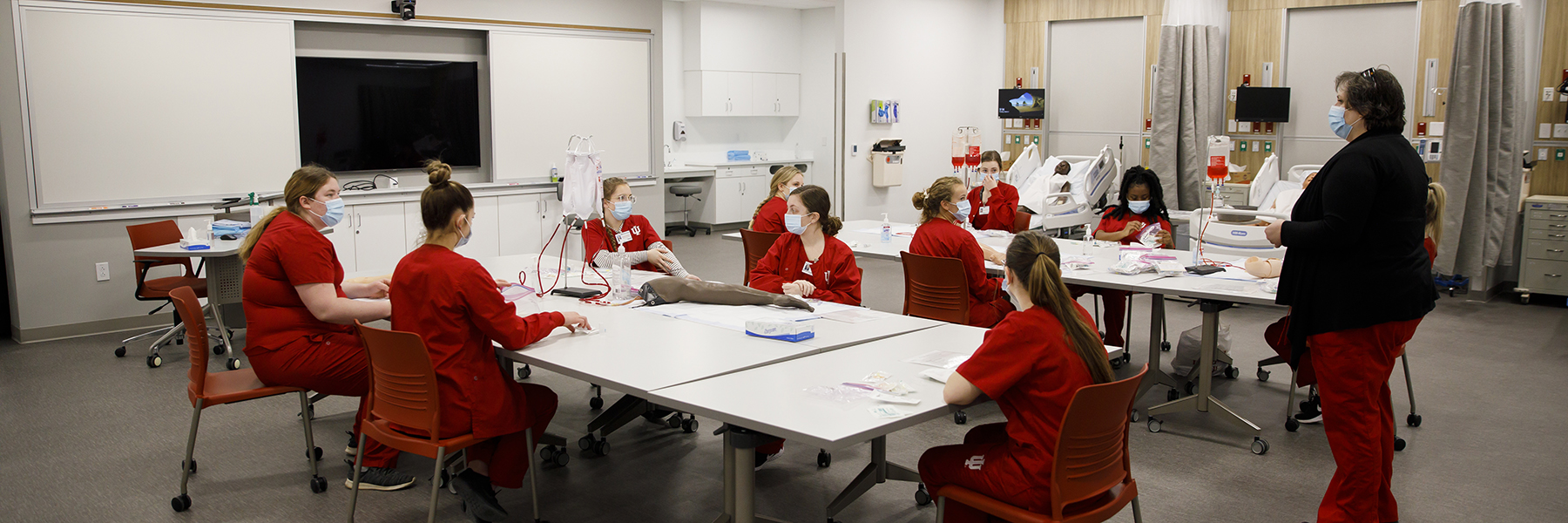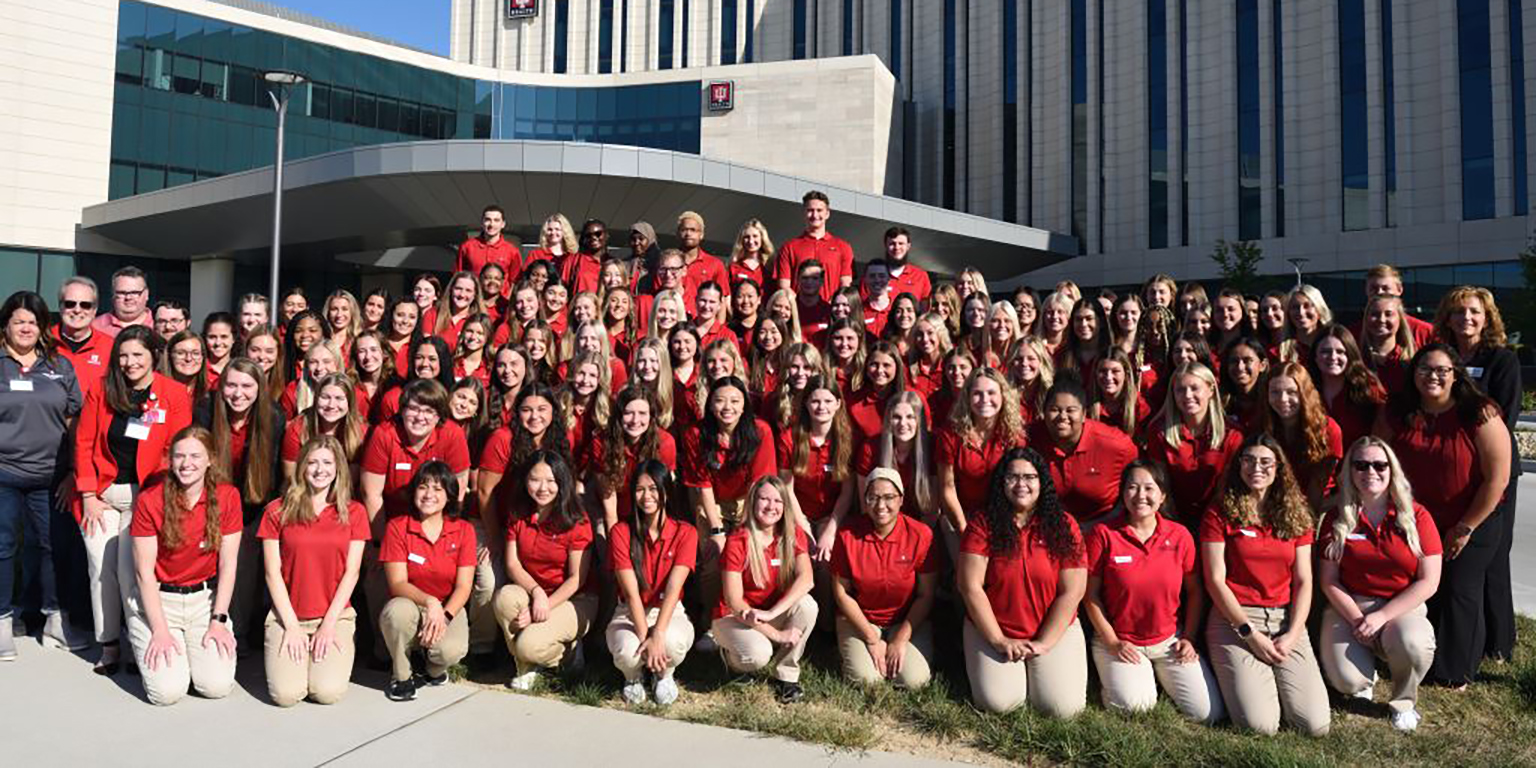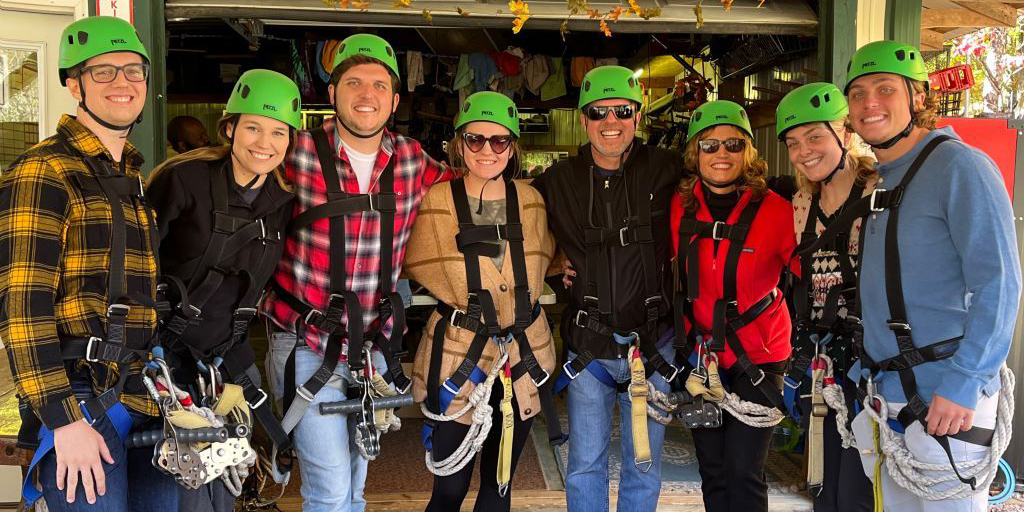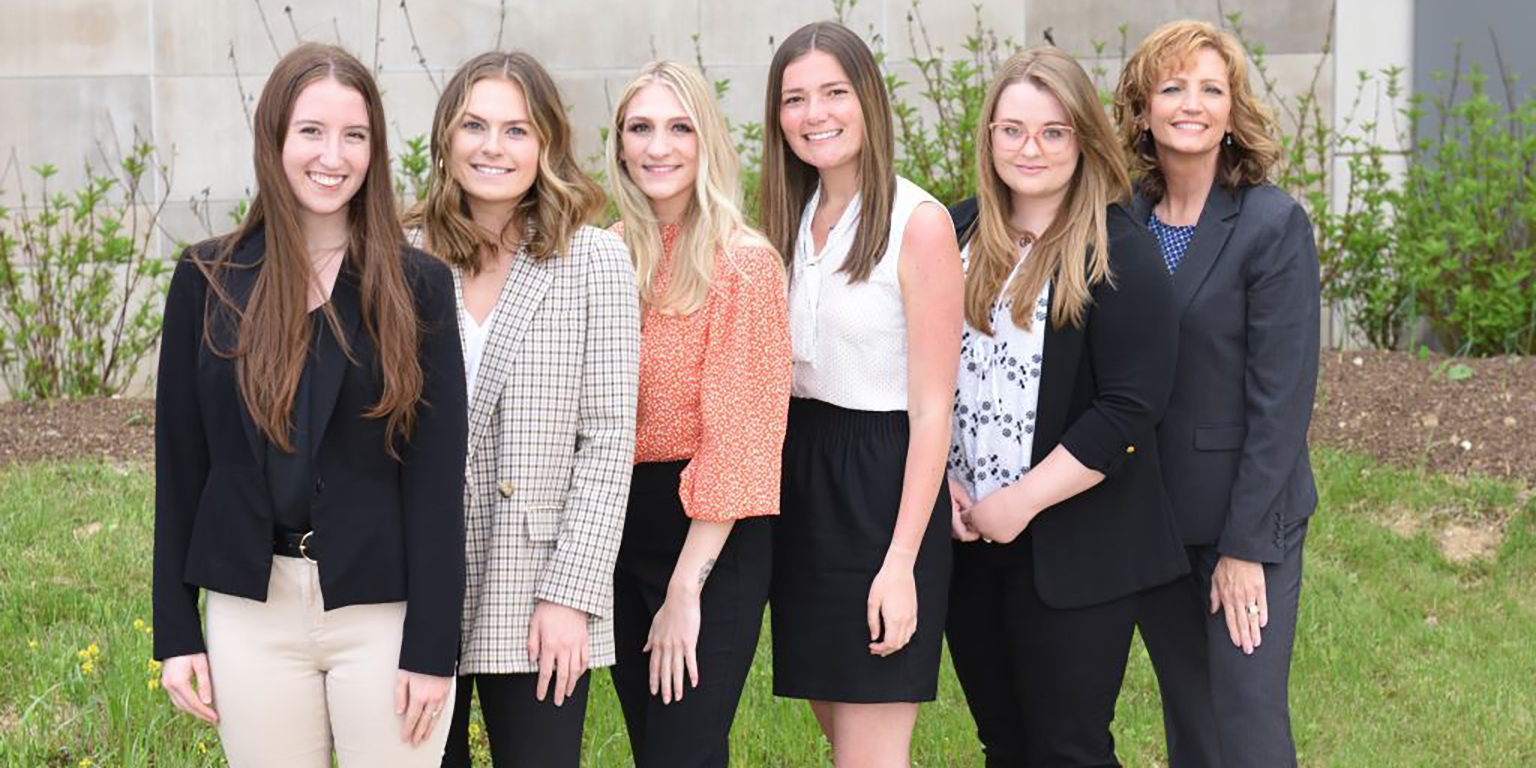Opsahl was recently promoted to associate professor with tenure. Previously, she was appointed to lead the school’s statewide RN to BSN Consortium, overseeing the planning, coordination, implementation, and evaluation of the RN to BSN Online Degree Completion Option. She has served as honors coordinator for undergraduate nursing honors research and continues to mentor groups of honors students for the school. She is the current Alpha Chapter President for Sigma Theta Tau International Honor Society of Nursing and serves on the board of directors for the Indiana Association for Healthcare Quality. In 2021, she was appointed to the National League for Nursing Commission as a Nursing Education Accreditation On-Site Program Evaluator, supporting continuous quality improvement and promoting excellence in national and international education for schools of nursing.
The Indiana University School of Nursing is No. 1 in the state for undergraduate baccalaureate nursing programs. The U. S. World and News Report ranked the Indiana University School of Nursing No. 22 in the nation for best Bachelor of Science (BSN) in nursing programs and it is the only school in Indiana with two centers of excellence in nursing education. The school announced early in 2022 that it would use a $16 million gift from IU Health to help address a nursing shortage by increasing undergraduate student enrollment by 50 percent over three years. The program received approval last week from the Indiana State Board of Nursing to expand student enrollment.
Q: What drew you to nursing as a profession? What were some of the highlights of your nursing education at IU?
A: I knew I wanted to be a nurse early in life. I have had several family experiences that have profoundly impacted my decision to enter the nursing profession. My great aunt, Lillie Margaret Lewis, was a nurse for 45 years and a night supervisor at Wishard Memorial Hospital. She would tell me stories of patient cases and her work with tuberculosis patients in the 1930s. My brother was diagnosed with Acute Lymphocytic Leukemia when he was 15 years old, and my family spent much time at Riley Hospital for Children for a few years. I observed the interactions of the health care team, including nursing and medical students from Indiana University, and how well they cared for my brother.
I have had several influential instructors and mentors since my admission to the Indiana University School of Nursing in 1987. Judith Halstead, Angela Barron McBride, Pat Ebright, Diane Billings, Mary Fisher, Sara Horton-Deutsch, Barbara Manz Friesth, Deanna Reising, and Amy Wonder, to name a few. These faculty have been supportive and inspired me along my educational journey, and I still reach out to some of them to this day. It is incredible to think of how Indiana University School of Nursing faculty have been influential to multiple generations of nurses through sharing their expertise around the world. I have had the good fortune to publish articles with a few as well.
Q: To what do you attribute the IU School of Nursing’s recent surge in the U.S. News & World Report Best Colleges rankings?
A: We have dedicated and talented faculty, advisors, and staff that work hard to support our outstanding students on their educational path. Our program benchmarks and evaluates our success in achieving and sustaining a quality educational environment for faculty and students.
We routinely review and evaluate our academic curricula for relevancy by matching our program to national demands and priorities. Additionally, we work closely with our clinical partners in the community through academic-practice partnerships to ensure we are meeting the needs of our students, supporting nursing practice, and impacting the health of our community.
Q: What do you love about your work?
A: Nursing has provided me the opportunity to impart my professional experiences and knowledge to prepare the next generation of nurses. As nursing faculty, we have the potential to influence the future of healthcare each day. We understand the need to empower and educate our students on their impact within the challenging environment they will enter. As a nurse leader, I understand and appreciate the privilege of the role that can influence and affect the trajectories of all involved in these collaborative relationships.
Q: What do you want people to know about the IU School of Nursing in Bloomington that they might not know?
A: We have a thriving Undergraduate Nursing Honors Program at IU School of Nursing Bloomington. In 2004, the Undergraduate Nursing Honors Program was formalized through elective coursework, which allows our eligible students to gain experience in research, evidence-based practice, and dissemination under the mentorship of faculty. Mentoring undergraduate students has allowed me to nurture and support students—in a way that would be difficult in the classroom—and has given me opportunities to reflect on and hone my teaching skills as I work with students one-on-one or in small honors cohorts. Including the 12 students admitted to the program in fall 2022, 83 students have received honors experience in our program. These students have supported and influenced the local community with their projects through our academic-practice partnerships. Our honors students have disseminated their work in national and international conference presentations with peer-reviewed publications of their work in prominent journals with their faculty mentors.
Q: What are some of the differences in the nursing profession today compared with when you were starting out as a nursing student? What advice do you have for nursing students?
A: In the past 30 years, we have seen tremendous technological innovations, new medications, and the sequencing of the human genome. We now have the capacity for all health care disciplines to view patient medical information via electronical medical records, wherever the patient is located across the care continuum. We have also seen improvements in the ability to connect and support patient care needs from home via telehealth. Although there are advances in health care delivery, we continue to see health inequity and barriers to access, which create new social and ethical challenges. Nurses are well-positioned to impact health inequity and social determinants of health. We care for patients in a wide array of practice settings that incorporate our different levels of nursing expertise.
My advice for our nursing students would center on self-care, helping to create a healthy work environment, and developing a growth mindset. Although our profession is rewarding, nurses face stressful workdays and need to be sure to take time for self-care to prevent burnout. Nurses must also work to help establish and sustain healthy work environments through collegial relationships, improving nursing satisfaction, and promoting positive patient outcomes. Additionally, when developing a growth mindset, we must not be afraid to ask questions, to listen to our peers and members of the interprofessional team, and to strive to take on challenges and learn from them, which increases our personal skillset and achievement.






